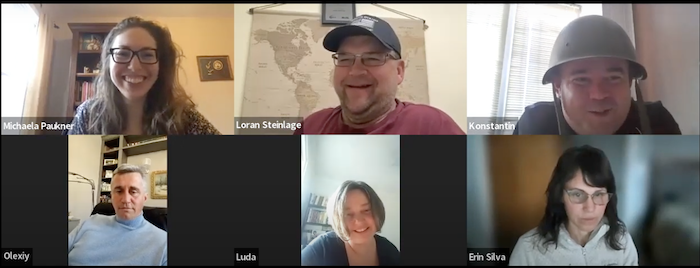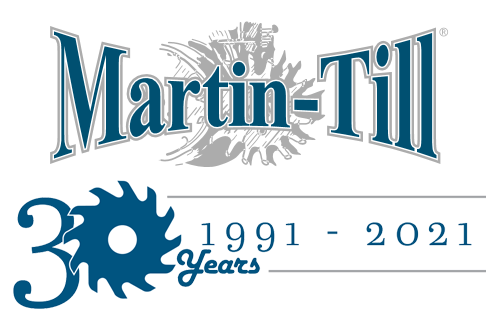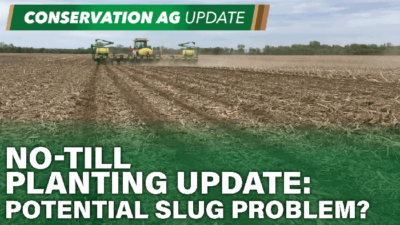Adjusting to Farming During Wartime
Konstantin joked that the audience expected him to be wearing a helmet during the webinar because Ukraine is at war, but most of the time he’s still wearing his farmer “hat.” Many people living in Ukraine, himself included, thought the war would last only a few weeks when it first began. Instead, he says that many of his friends have now had two birthdays during wartime. Because of this, they are being forced to adapt and find ways to farm while the war is still going on around them.“I have one farmer friend who planned to seed sunflowers and corn. He was all ready to plant and just waiting for the right weather to come,” Konstantin says, “but then the Russian military came and said ‘you cannot grow agricultural products like corn and sunflower because the plants are too tall, and we may need to locate people who will go through your field.’”Konstantin’s friend is now considering planting soybeans, but this is something he has never done before and he does not have the right equipment or a clear direction for how to successfully plant soybeans in his region.While Konstantin knows that no-till and cover crops are two useful farming practices in times of peace, they aren’t necessarily the most useful for farmers in certain parts of Ukraine right now.“One of my friend’s fields has been run over by tanks and war vehicles, and in that situation, it’s good that he is plowing because the tank did not interfere as much as it could have in a no-till field. I guess when your country has war, plowing is better.”In the early stages of the war, Konstantin and some of the other farmers who work alongside him were all feeling a mental toll and not quite like themselves.“I talked to my friend who is a psychologist, and he told me that one of the best things I can do to get my mind back to normal is physical work,” Konstantin says. “We took his advice, and after just a few days of doing some work outside with our hands, we were already feeling more like ourselves again.“When a lot of farmers from Europe and America ask how I’m doing, my main answer is still alive. When I wake up in the morning, I’m happy because our victory is one day closer than it was yesterday.”Issues Securing Supplies & Exporting Goods
Getting supplies that farmers need while the country is in a state of war is another ongoing issue for Ukrainian no-tillers.“Imagine trying to call your bank and no one is answering, or if they do answer, they are asking you why you are calling while there is a war going on,” Konstantin says. “You’re trying to organize a shipment of some diesel fuel, and it’s like everybody is sleeping or something because you can’t get a hold of anyone.”Konstantin realized that he would have to be proactive and creative if he wanted to continue to help farmers during the war, so he organized a Zoom call with CNH Industrial and New Holland to try to come up with a solution.“I told them that I don’t have the ability to pay, but I wanted an open limit account to get at least one truck of spare parts for agricultural equipment in Ukraine because farmers need spare parts here,” Konstantin says. “After 2 days of discussing and analyzing everything, they gave us the open limit for one truck of spare parts. We were the first company in Ukraine to get spare parts in during this time.”But the problems didn’t end there. Before the war, Konstantin says roughly 90% of all Ukraine’s agricultural exports were moved through the Black Sea. Since that was no longer an option, Konstantin once again had to come up with a creative solution to help farmers export their corn, grain, soybeans and other crops.After doing some calculations on how much longer it would take to sell their goods to different parts of Europe and through different methods of travel that did not involve the Black Sea, Konstantin quickly realized that a different export option would not be logistically possible and instead, they would need to find a way to store their excess goods. After exhausting all storage options and only running into even bigger problems, Konstantin came up with another idea. If he couldn’t find a way to export their excess goods, he would need to find a different way to make use of them.Bourbon, Biofuel Could Be the Answer
“It was in this period that we had a good idea to organize production of good quality bourbon, which I understand is a special type of whiskey made from a certain percentage of corn, which in Ukraine we have a huge quantity of,” Konstantin says.The wheels started turning, and Konstantin had two ideas right off the bat to market this bourbon in a way that would accurately represent the people of Ukraine. First, he wanted this bourbon to be stronger than most to represent the strength of the Ukrainian people and second, his logo would have a blue sky with yellow corn beneath it, to represent the colors of the Ukrainian flag.He is hoping to find a partnership with someone in the U.S. for help with production. Konstantin says Ukrainian farmers are grain specialists, but they need the help of Americans to bring in knowledge on the production of high-quality bourbon.“If we’re going to do this, it has to be of good quality and has to represent the strongest people of Ukraine, and so it must be done by a good producer,” Konstantin says. “I am ready and open to discuss the business idea with anyone who has good knowledge of the subject.”He’s also considering ethanol as another option for using Ukraine’s excess corn.“My dream is to have ethanol production here,” Konstantin says. “You have a lot of such production in America, and I don't know if we have very good production in Ukraine. Then we'll have less expenses for transporting corn.”The No-Till Passport series is brought to you by Martin Industries.
Since 1991, Martin Industries has designed, manufactured and sold leading agriculture equipment across the U.S. and Canada. Known for Martin-Till planter attachments, the company has expanded to include a five-step planting system, closing wheel systems, twisted drag chains, fertilizer openers and more in their lineup. Their durable and reliable planter attachments are making it possible for more and more farmers to plant into higher levels of residue.









Post a comment
Report Abusive Comment